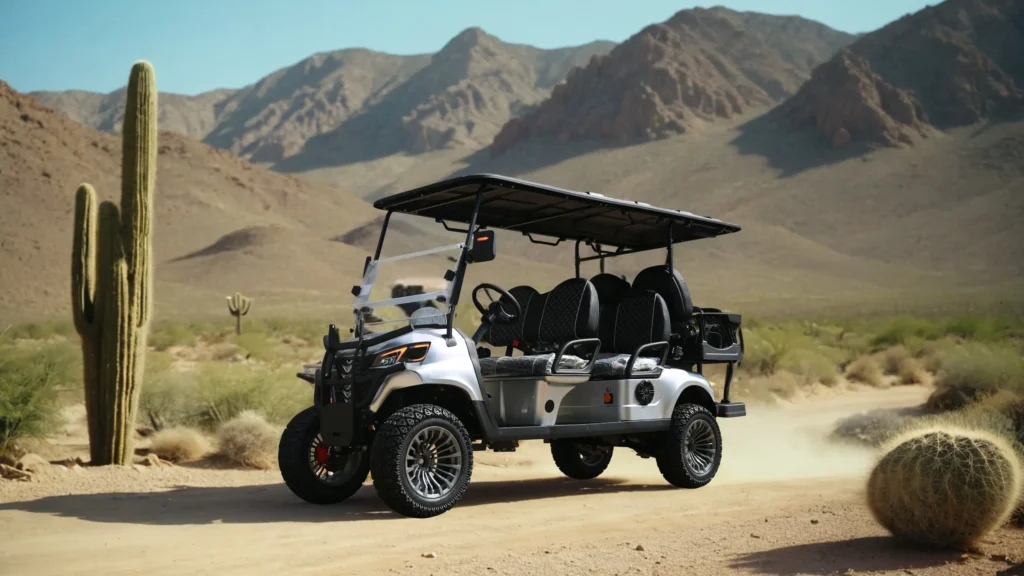The importation of electric golf cars into the Philippines is challenging due to the tariffs and other costs. Understanding the tariffs is essential to optimize your investment and understand the financial implications of importing electric golf cars.
The import tax on electric golf cars can be significant and can greatly affect the cost of procurement. The tax varies based on the type of vehicle and its specifications. You need to know the tariffs and other costs to do a proper cost assessment.

To understand the total cost impact of importing electric golf cars, you need to understand the tariffs and all the other costs and regulations that impact the importation of these vehicles.
How Much is the Import Tax for Electric Vehicles in the Philippines?
The import tax for electric vehicles in the Philippines, including electric golf cars, can vary. Generally, electric vehicles may have lower import taxes than traditional combustion vehicles due to their eco-friendly nature. For specific electric golf cars, the import tax can vary based on their classification and specifications, such as battery type and seating capacity.
Key takeaway: Electric vehicles may have lower import taxes, but electric golf cars may have a specific import tax rate due to their classification as specialized recreational or utility vehicles. Be sure to check the current government tax rates or consult with a local customs expert for the most up-to-date information.
Does the Specification of Electric Golf Cars Affect the Tariff?
Yes, the specifications of electric golf cars, such as battery type, power output, and seating capacity, can affect the import tax rate. The Philippines, like many other countries, has different import tax rates based on how the vehicles are classified.

This includes differences between personal use vehicles and utility vehicles such as golf cars. Understanding these differences can help you avoid unexpected costs. For example, golf cars with higher voltage batteries or with specific features may fall into different tax brackets, which could lead to higher costs.
What Other Fees Are Associated with Importing Electric Golf Cars to the Philippines?
Aside from the primary import duty, there are several other fees to consider, including:
- Value-added tax (VAT): Typically around 12% of the total landed cost of the import.
- Environmental fees: Charged to promote sustainable practices and mitigate environmental impact.
- Customs processing fees: Covering the administrative costs of handling imports.
These fees are added to the base tariff and can significantly impact the final cost of the import.
What Are the Clearance and Documentation Requirements for Importing?
To import electric golf cars into the Philippines, you need specific documentation, including:

- Bill of Lading: Evidence of the shipment details.
- Commercial Invoice: Listing the specifics of the item and the transaction value.
- Import Permit: If required, this authorizes the entry of goods.
- Certificate of Origin: Proves the source of the product to determine the applicable tariff.
- Customs Declaration Form: Required for processing the entry.
Having these documents in order will help speed up the clearance process and prevent any delays.
How to Calculate the Total Cost of Importing Electric Golf Cars?
Calculating the total cost involves adding:
- CIF value (Cost, Insurance, and Freight): Base cost of the product and logistics.
- Import duty: Percentage based on product type.
- VAT and other fees: A calculated 12% VAT and any additional local taxes or charges.
Example: If the CIF value is $10,000 and the import duty is 20%, the import tax would be $2,000. Adding a 12% VAT on the CIF and duty combined ($12,000), which is $1,440, brings the total import cost to $13,440.
Are There Any Exemptions or Incentives for Electric Golf Car Imports?
In some cases, there may be exemptions or reduced tariffs for electric vehicles under eco-friendly initiatives. These incentives are designed to encourage the importation of sustainable transportation options. Check for any relevant policies, such as preferential tariffs under specific trade agreements or government programs that support green transportation.

Staying informed about these potential benefits could result in significant savings for your business.
Conclusion
Understanding the tariff landscape and related fees for importing electric golf cars into the Philippines is critical for accurate budgeting and decision-making. By understanding the tariffs, VAT, and clearance requirements, you can better prepare and manage your costs.




